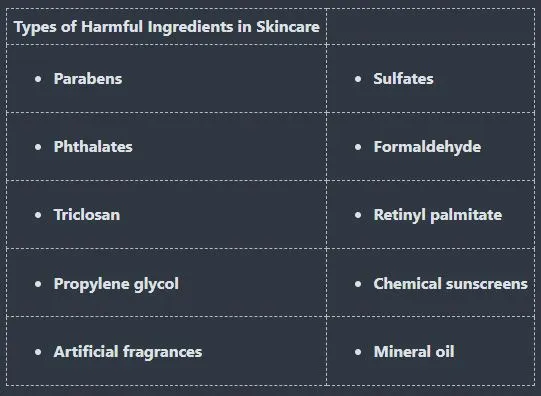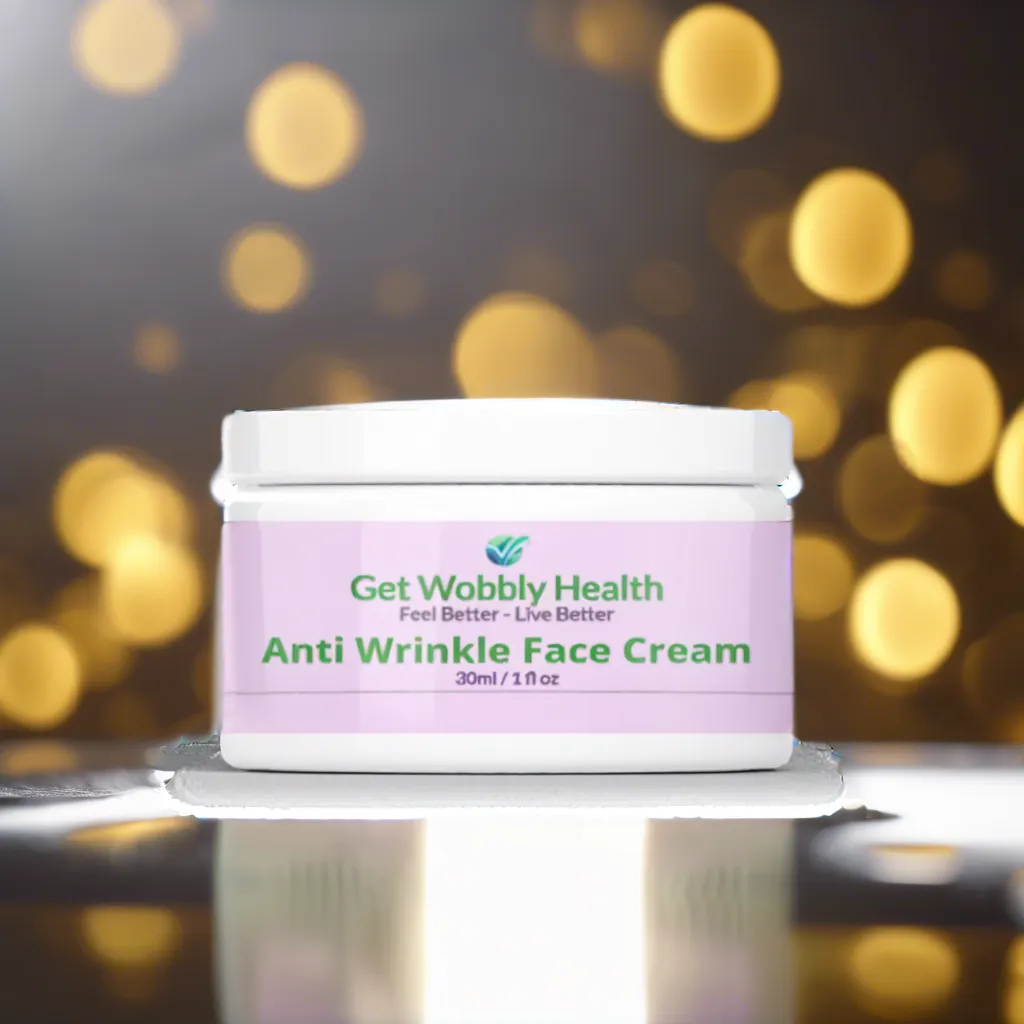Are Parabens and Sulfates Harming Your Skin? A Guide to Avoiding Harmful Ingredients in Skincare

Overwhelmed by the countless skincare products lining the shelves, each promising radiant skin but often containing parabens and sulfates that can do more harm than good? It's time to take control of what you're putting on your skin. Understanding the potential dangers of these harmful ingredients can help you make informed choices to protect your skin's health and vitality. In this guide, we'll probe into the world of skincare ingredients, highlighting what to look out for and how to steer clear of parabens and sulfates for a healthier skincare routine.
Key Takeaways:
- Parabens: Check labels for parabens, as they have been linked to hormone disruption and potential health risks.
- Sulfates: Avoid sulfates like SLS and SLES, as they can strip the skin of natural oils and cause irritation.
- Natural Alternatives: Look for products that use natural preservatives and cleansers like necessary oils and plant extracts.
- Read Labels: Take the time to read ingredient labels and research any unfamiliar substances to make informed choices about skincare products.
- Consult a Dermatologist: If you have skin sensitivities or concerns about certain ingredients, consider consulting with a dermatologist for personalized recommendations.
Understanding Skin and Skincare Products
How Your Skin Functions
You probably know that your skin is the largest organ in your body, but do you know how it works to keep you healthy? Any understanding of how your skin functions is crucial for making informed decisions about skincare. The outermost layer of your skin, the epidermis, acts as a barrier to protect the deeper layers from environmental damage, harmful pathogens, and water loss. Below the epidermis lies the dermis, which contains important structures like sweat glands, hair follicles, and blood vessels.
It's important to recognize that everyone's skin is unique, and factors like age, genetics, and lifestyle choices can affect how your skin functions. By learning about your skin type and its specific needs, you can better tailor your skincare routine to keep your skin healthy and vibrant.
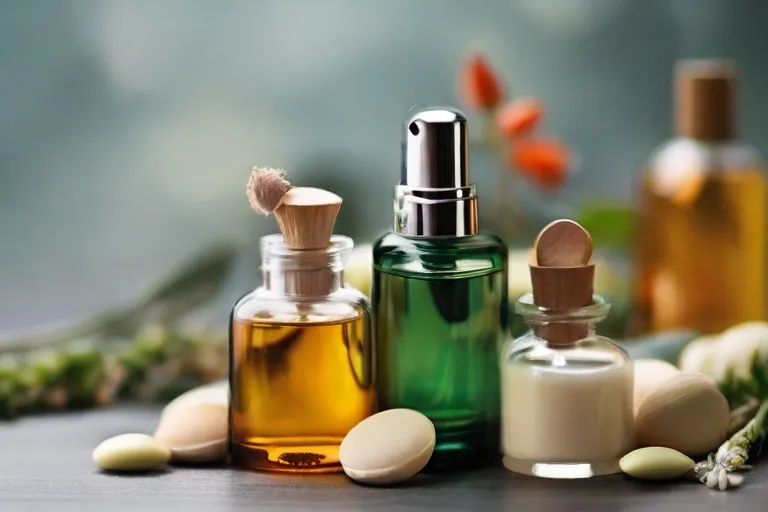
The Role of Skincare Products in Skin Health
Assuming you're already committed to taking care of your skin, it's crucial to understand the role skincare products play in maintaining skin health. Skincare products are designed to support your skin's natural functions and address specific concerns like hydration, aging, or acne. Using the right products can help nourish your skin, protect it from damage, and promote a clear, glowing complexion.
Products that contain parabens and sulfates can be harmful to your skin in the long run. These ingredients are known to cause irritation, disrupt hormones, and lead to allergic reactions. It's crucial to read the labels on your skincare products and opt for paraben and sulfate-free options to safeguard your skin's health. Look for products with natural ingredients like aloe vera, hyaluronic acid, and vitamin E which can enhance your skin's hydration and overall health.
Decoding the Labels: Types of Ingredients to Watch Out For
Even though skincare products can work wonders for your skin, it is important to be mindful of the ingredients they contain. Some ingredients like parabens and sulfates can potentially harm your skin in the long run. Therefore, deciphering the labels and understanding which ingredients to avoid is crucial for maintaining healthy skin.
Other Potentially Harmful Ingredients
While parabens and sulfates are commonly known harmful ingredients, there are other substances that you should watch out for in your skincare products. Phthalates, formaldehyde, triclosan, retinyl palmitate, and propylene glycol are all ingredients that can have negative effects on your skin over time. Knowing which ingredients to avoid can help you make informed choices when selecting your skincare products.
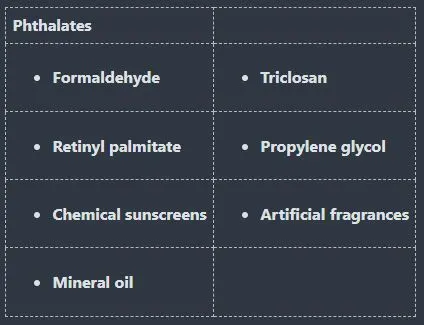
Little do most consumers know, many skincare products contain ingredients that offer no real benefits and may even be harmful in the long run. Artificial fragrances, mineral oil, and other potentially harmful ingredients can have adverse effects on your skin and overall health.
Therefore, it is crucial to educate yourself on the list of ingredients and choose products that prioritize natural and beneficial components. Ingredients like chemical sunscreens and retinyl palmitate can be harmful to your skin, leading to issues like irritation, allergic reactions, and even long-term damage.
On the other hand, parabens and sulfates are commonly used preservatives and cleansing agents that have been linked to hormone disruption and skin irritation. Recognizing these ingredients on the labels can help you make wiser choices for your skincare routine.
Factors Affecting Your Skin's Reaction to Ingredients
After trying out a new skincare product, have you ever wondered why it didn't work as expected? The truth is, several factors can influence how your skin reacts to different ingredients. Understanding these factors can help you choose the right products for your unique needs.
Skin Type and Ingredient Sensitivity
Type of skin plays a crucial role in how it responds to various ingredients. If you have sensitive skin, you may experience redness, irritation, or breakouts when exposed to certain ingredients. On the other hand, those with oily skin may find that heavy ingredients clog their pores and lead to acne flare-ups. It's crucial to know your skin type and look for products formulated specifically for it.
The Impact of Environmental Factors
With the rise in pollution and UV exposure, our skin is constantly battling external aggressors. These environmental factors can amplify the effects of harmful ingredients in your skincare products, leading to increased sensitivity and damage. It's crucial to shield your skin from these environmental factors by using products with antioxidants and SPF protection. Additionally, consider adjusting your skincare routine based on the changing seasons to provide adequate hydration and protection.
- Air pollution
- UV radiation
- Climate changes
Any sudden changes in your skin, such as increased dryness or irritation, could indicate that environmental factors are impacting your skin's health. Be mindful of these changes and adjust your skincare routine accordingly to protect your skin from harm.
The Pros and Cons of Parabens and Sulfates in Skincare
All skincare enthusiasts have encountered the ongoing debate about the use of parabens and sulfates in beauty products. Understanding the advantages and disadvantages of these common ingredients is crucial in making informed choices about your skincare routine. Let's explore the pros and cons of parabens and sulfates to help you navigate the world of skincare ingredients.
Advantages of Parabens and Sulfates

Not all skincare benefits come without risks. Parabens have been linked to endocrine disruption, while sulfates can be harsh on sensitive skin, causing dryness and irritation. Understanding these potential risks is necessary in deciding whether to include these ingredients in your skincare routine.
Tips for Safeguarding Your Skin
Unlike what many may think, there are ways to safeguard your skin from harmful ingredients commonly found in skincare products. By being aware of what you're putting on your skin, you can make better choices for your overall health. Here are some tips to help you avoid these harmful substances:
- Avoid products containing parabens and sulfates as they can be harsh on the skin and potentially harmful in the long run.
- Look for clean beauty labels or certifications that indicate the product is free from harmful chemicals.
- Opt for organic or all-natural skincare products to minimize exposure to synthetic substances.
- Read ingredient lists carefully and familiarize yourself with common harmful chemicals to watch out for.
The next time you reach for a new skincare product, remember to check the label and do your research. Are Harmful Chemicals Hiding in Your Cosmetics?
Identifying Irritants in Your Current Routine
The key to protecting your skin is understanding what ingredients may be causing irritation or harm. Take note of how your skin reacts to certain products and look for common irritants like fragrances, alcohol, and artificial dyes. If you notice redness, dryness, or breakouts after using a specific product, it may be time to eliminate it from your routine.
How to Choose Safer Skincare Options
While it may seem daunting to navigate the world of skincare ingredients, there are simple ways to choose safer options. Start by selecting products that are labeled non-comedogenic and dermatologist-tested to reduce the risk of clogged pores and skin irritation. Plus, look for skincare brands that prioritize transparency and provide detailed information about their ingredient sourcing and manufacturing processes.
Step-by-Step Guide to Transitioning to a Healthier Skincare Regimen
Keep Assessing Your Skincare Needs
On your journey to transition to a healthier skincare regimen, it's vital to assess your skin type and specific concerns. Whether you have dry, oily, combination, or sensitive skin, understanding your skin's needs will help you make informed decisions when choosing new products. Take note of any current issues you want to address, such as acne, redness, or signs of aging.
There’s Step-by-Step Transition Plan

Step-by-Step Transition Plan
There’s a step-by-step process to transitioning to a healthier skincare regimen that involves identifying and removing harmful ingredients before introducing clean products. It's important to take this process slowly to allow your skin to adjust to the changes. Remember that some products may cause reactions, so it's best to patch test new products before applying them to your entire face.
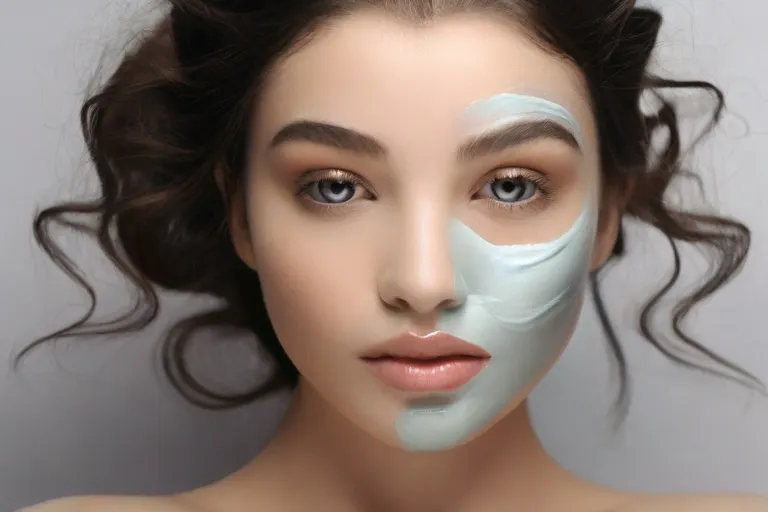
Maintaining Healthy Skin Without Compromise
Not all skincare routines have to compromise your skin's health for effectiveness. By adopting certain long-term skincare habits and embracing the right ingredients and practices, you can achieve healthy, glowing skin without exposing yourself to harmful chemicals.
Long-Term Skincare Habits to Adopt
Adopting a consistent skincare routine is key to maintaining healthy skin in the long run. Ensure to cleanse your face twice daily, moisturize regularly, and protect your skin from the sun by using sunscreen daily. Additionally, staying hydrated, getting enough sleep, and managing stress levels can also significantly impact the health of your skin.
Ingredients and Practices to Embrace for Healthy Skin
Little changes in your skincare products can make a big difference. Avoid products that contain parabens, sulfates, phthalates, and artificial fragrances as they can be harmful to your skin in the long term. Embrace ingredients like hyaluronic acid, vitamin C, retinol, and antioxidants which can help promote healthy skin by hydrating, brightening, and repairing damaged skin cells.
Maintaining healthy skin is about making conscious choices for your skin's well-being. Choosing products with natural and organic ingredients can help nourish your skin without exposing it to harsh chemicals. Consistency in your skincare routine and incorporating skin-loving ingredients can go a long way in achieving a radiant complexion that's healthy from the inside out.

To wrap up
With this in mind, it is important to be aware of the potential harm that parabens and sulfates can have on your skin. By choosing products that are free of these harmful ingredients, you can help protect your skin from irritation, dryness, and potential long-term effects. Reading ingredient labels, doing research, and opting for natural alternatives can help you make informed decisions when it comes to skincare products.
Do not forget, your skin is unique, and what works for one person may not work for another. If you are unsure about which products to choose or how certain ingredients may affect your skin, consulting with a dermatologist can provide valuable insight and guidance. By being mindful of the ingredients in your skincare products, you can take proactive steps towards promoting healthier, happier skin.
FAQ
Q: What are parabens and sulfates?
A: Parabens are preservatives used in cosmetics and skincare products to prevent the growth of bacteria and mold. Sulfates are cleansing agents that create the foamy lather in many skincare products.
Q: Why are parabens and sulfates harmful to the skin?
A: Some studies suggest that parabens can disrupt hormones and might be linked to certain health issues. Sulfates can strip the skin of its natural oils, leading to dryness and irritation.
Q: How can I identify products that contain parabens and sulfates?
A: Check the ingredient list on the product packaging. Look out for ingredients like "parabens," "sulfates," "SLS (Sodium Lauryl Sulfate)," "SLES (Sodium Laureth Sulfate)," and "ALS (Ammonium Lauryl Sulfate)."
Q: What are some alternatives to products with parabens and sulfates?
A: Look for skincare products that use natural preservatives like crucial oils or plant extracts. Choose sulfate-free cleansers that use gentle cleansing agents derived from coconut or sugar.
Q: Are there any risks associated with using products that contain parabens and sulfates?
A: While the research is ongoing, some people may experience skin irritation or allergic reactions to these ingredients. It's always best to choose products that are free from potentially harmful ingredients to reduce the risk of any adverse effects on the skin.
Experience visibly younger-looking skin with our revolutionary face cream, designed to boost hydration, restore elasticity, and eliminate wrinkles for an instant flawless finish; join the revolution to never accept looking older.

